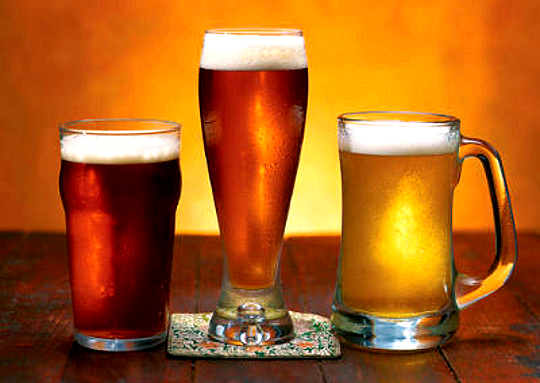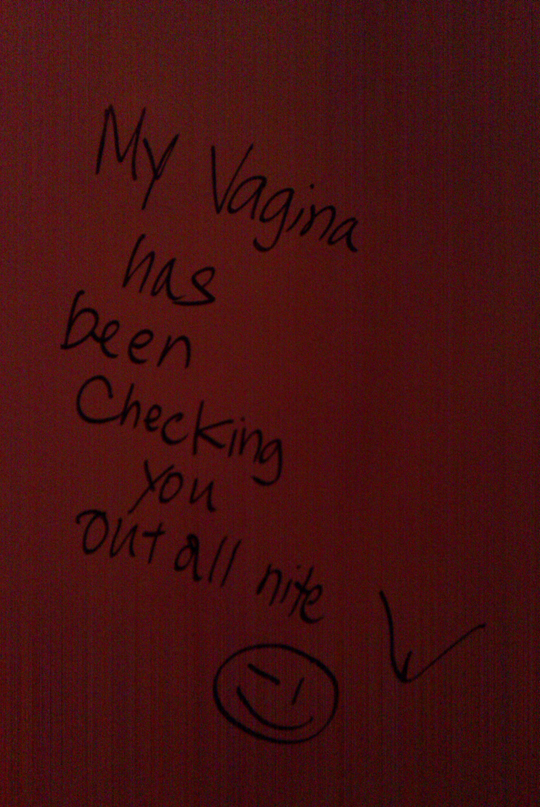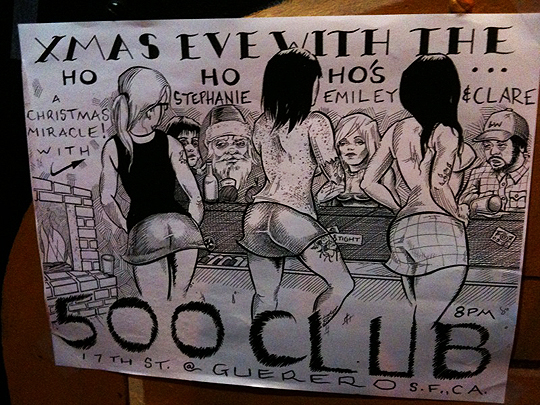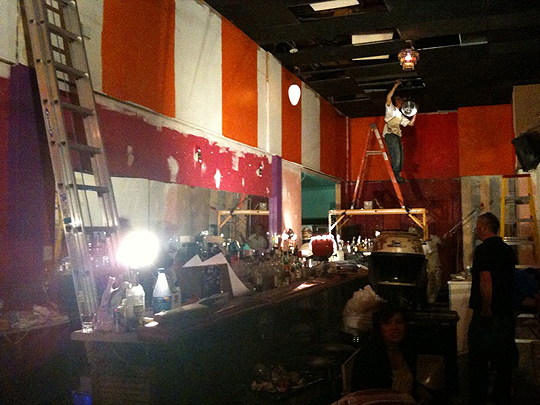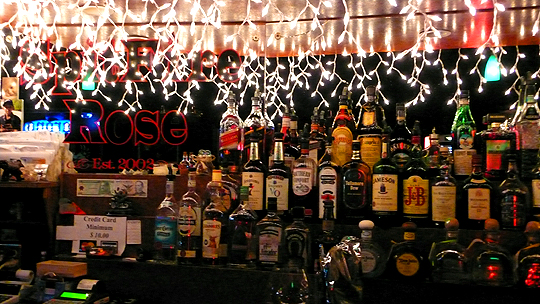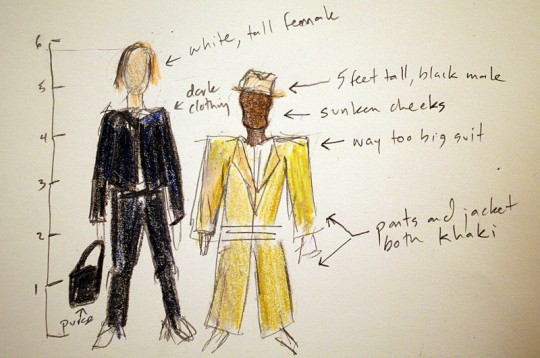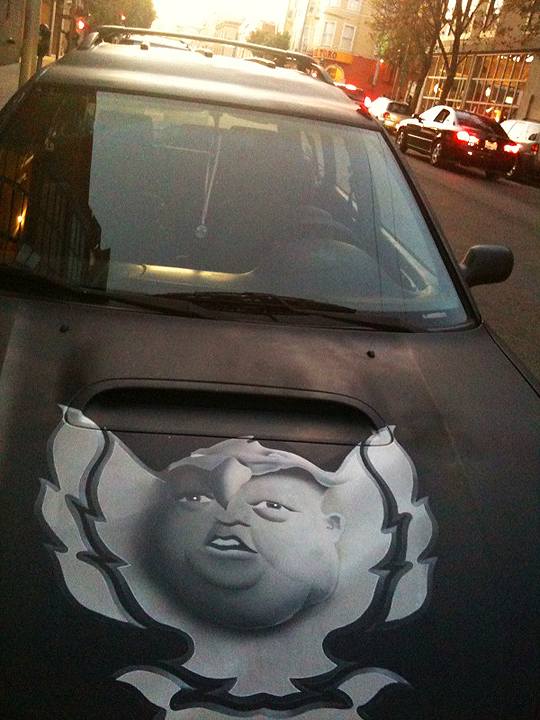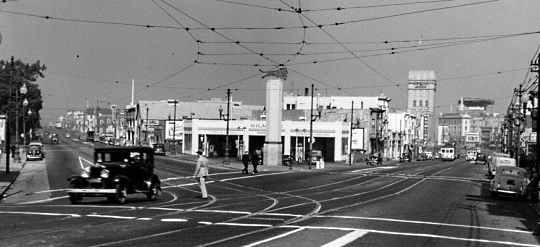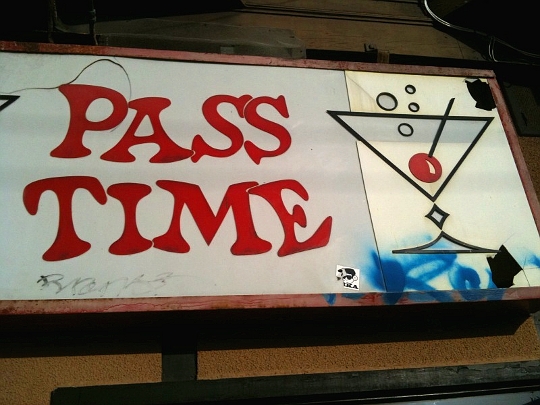
Only a special kind of bar can prompt philosophical thought by its very name on the sign. In the case of “Pass Time,” that question is: “Typo, or command?”
If it’s a typo, one imagines what the intended spelling was, and the implications regarding the vision of the proprietors. “Pastime,” as in, America’s favorite, means one thing, while “Past Time” means another.
But the other possibility – that the sign contains no mis-spelling, and is indeed insisting that those who enter do so with the ambition of staying a while – is even more intriguing. After all, we still are not being told whether there is any sound reason to enter this place. Do I come in, sit at the bar, oder round after round, and content myself with “passing time” as you ordered me too, simply because I was already a little tipsy and kind of suggestible, so why not? Or is there something else on offer to make my extended stay worth it beyond pleasing your desire to dictate my destiny?
Or, does the philosophical enquiry go even deeper than that, with the sign uttering a metaphysical command to all who are conscious and may happen to read it, regardless of whether they enter the establishment beneath?
Remember the childhood game, Why-Are-You-Hitting-Yourself? The question is asked of the playground victim merely to add a little ironic humiliation to the pain, while using superior strength to wallop them with their own hand. It’s pure cruelty, and yet it teaches the victim an important lesson, does it not? It teaches that often we are punished by malevolent forces beyond our control, forces which may taunt us as if we could act to make it not so. But we cannot. Perhaps the words above the entrance to the bar should read:
To all who see this sign, please understand that, as belligerent as it seems, there can be no such command as “pass time,” for we all must. We are born, we pass time, and then we die. Oh, and if you try to come here to forget this truth, we won’t make it easy for you.
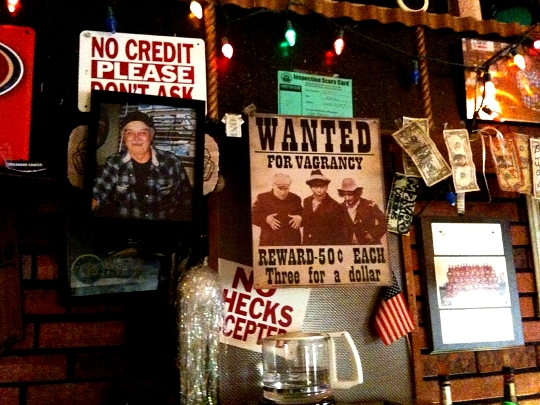
Well, the time I passed at Pass Time did not entirely lack a sense of malevolence. Hernando, the older Colombian gentleman next to me at the bar, told me he’d gone to high school in Medellín with Pablo Escobar. I chose to believe this while looking at the many photos of the Three Stooges pinned up over the booze. I tried not to notice the toothless woman at the end of the bar laughing and screaming in Spanish.
I never shook the nagging mysteries of the name of this quintessential neighborhood dive, and in fact came to feel quite comfortable with them. The Cazadores burned in just the right way, and the sun set.
And as the bartender refilled my glass without a prompt, I thought I heard him ask, “Why are you hitting yourself?”
View Spots Unknown Map in a larger map

